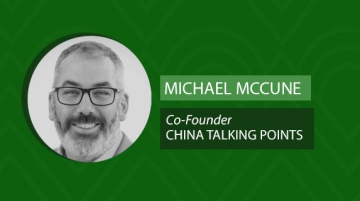This past New Year’s eve, just a few hours before midnight, one of Japan’s largest daily newspapers published a story that took a lot of people by surprise. The Japanese government,
according to the report in Yomiuri Shimbun, quietly floated the idea of inviting its longtime Asian rival China to collaborate on development projects in Africa in exchange for Beijing’s assistance to help restrain North Korea’s nuclear and missile programs.
So far there’s been no public response from Chinese authorities as to whether they are interested in partnering to help develop the $280 million Japanese “Growth Corridor” in Africa that aims to build 4,200km of roads across a cluster of West African nations including Burkina Faso, Ghana, Benin and Nigeria. Nonetheless, Tokyo’s offer was remarkable considering the bitterness that defines the Sino-Japanese relationship today as the two countries continue to feud over a wide range of issues, everything from unresolved World War II disputes to a tense territorial showdown in the East China Sea.

India, like Japan, is also experiencing increasingly tense relations with China over disputed borders, relations with Pakistan and China’s rapid emergence as a major naval power in the Indian Ocean, once considered New Delhi’s traditional sphere of influence. In what many analysts see as a bid to counter China’s trillion dollar “One Belt, One Road” global trade route,
India teamed up with Japan to launch the Asia-Africa Growth Corridor as an alternative in Africa.
“East Africa seems to be the primary region of competition for China, India and Japan. As a geo-strategic gateway for Africa-Asia trade and the fastest growing region in Africa, all parties seem to be aware of the region’s significance to their connectivity projects. ” —Mandira Bagwandeen
Over the past ten years, Indian officials have expressed growing alarm over the surging Chinese engagement in East Africa where India has been present for centuries since the early colonial period.
Show Notes:
About Mandira Bagwandeen:
 Mandira Bagwandeen is Asia Pacific analyst at S-RM (formerly Salamanca Risk Management), a business intelligence and risk consulting company based in Cape Town. In fall 2018, Mandira will begin a Phd program at the University of Cape Town focusing on China’s One Belt, One Road global trade route.
Mandira Bagwandeen is Asia Pacific analyst at S-RM (formerly Salamanca Risk Management), a business intelligence and risk consulting company based in Cape Town. In fall 2018, Mandira will begin a Phd program at the University of Cape Town focusing on China’s One Belt, One Road global trade route.

 Mandira Bagwandeen is Asia Pacific analyst at S-RM (formerly Salamanca Risk Management), a business intelligence and risk consulting company based in Cape Town. In fall 2018, Mandira will begin a Phd program at the University of Cape Town focusing on China’s One Belt, One Road global trade route.
Mandira Bagwandeen is Asia Pacific analyst at S-RM (formerly Salamanca Risk Management), a business intelligence and risk consulting company based in Cape Town. In fall 2018, Mandira will begin a Phd program at the University of Cape Town focusing on China’s One Belt, One Road global trade route.










